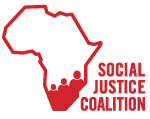Response by O’Regan-Pikoli Commission Complainant Organisations to statement from MEC Dan Plato
“It is clear to the Commission that policing in Khayelitsha is profoundly challenging. Deep levels of poverty, poor levels of infrastructure and very high crime rates make Khayelitsha a particularly difficult place for SAPS to operate.” (O’Regan-Pikoli Commission final report, page xxiv)
The Social Justice Coalition, Ndifuna Ukwazi and Equal Education welcome the statement released on Monday by the Western Cape MEC for Community Safety, Dan Plato. The statement (http://tinyurl.com/n8akm43) announced the Western Cape Government’s “plan of action” to implement the findings of the O’Regan-Pikoli Commission of Inquiry. The ultimate goal of this plan, according to Mr Plato, is to improve the safety of the residents of Khayelitsha.
The O’Regan-Pikoli Commission was established in response to a complaint that was lodged with the Premier of the Western Cape by five complainant organisations: the Social Justice Coalition, Ndifuna Ukwazi, Equal Education, the Treatment Action Campaign and Triangle Project. The Commission’s mandate was to investigate allegations that the Khayelitsha police were inefficient and had lost the trust of the community. The original complaint and the Commission’s final report can be accessed on its’ website:
www.khayelitshacommission.org.
The way forward
The primary goal of the Commission’s report is to “improve the safety of people who live and work in Khayelitsha”. While the majority of the recommendations are specific to SAPS, the Commission recognised that police perform their duties in “difficult circumstances” and that creating a ‘safe’ environment requires the involvement of multiple stakeholders. Therefore, many of the recommendations are directed at the City of Cape Town, the provincial Department of Community Safety, and other role players.
The following list shows some of the promised actions by DoCS, with the corresponding Commission recommendation in brackets:
– Nominating the Director of Monitoring and Evaluation, Deon Oosthuizen, to be part of a planned monitoring and oversight team. The team is meant to oversee the implementation of the Commission’s recommendation and to ensure that inefficiencies are eradicated at the Khayelitsha police stations and in the Family Violence, Child Protection and Sexual Offences Unit.
The complainant organisations welcome the appointment of Mr Oosthuizen to the monitoring and oversight team, and look forward to working constructively with him in ensuring that the objectives of Commission are realised. We will be seeking an urgent meeting to discuss our cooperation with the team.
– Increasing Community Police Forum’s (CPFs) access to funding and other resources. The Commission found that CPFs have not been effective in improving community-police relations. Evidence produced during the Commission also showed that DoCS resourcing of CPFs has been wholly inadequate. The complainant organisations hope that DoCS and SAPS will work together to ensure that CPFs are properly capacitated to ensure that they can fulfil their constitutional oversight and support roles. Specific needs of CPFs, particularly in historically poor and disadvantaged communities, should be taken into account.
– Contacting school principals, faith-based organisations, community police forums, community based organisations, and other stakeholders to establish a forum to examine vigilante justice in Khayelitsha. The forum will try to develop an “integration programme aimed at preventing vengeance attacks and killings”. The complainant organisations made many submissions to the Commission that specifically address the vigilante violence and related issues. This dates for the forum should be made public as soon as possible, and we look forward to participating.
– Setting up a “multi-sectoral” task team on youth gangs. The team will also include the Department of Social Development, the Department of Education, SAPS, and other stakeholders.
A youth gang emergency exists in Khayelitsha, and the task team should be established as soon as possible in order to implement a strategy within the Commission’s six month deadline. Mr Plato reported that the province was investing R500,000 in a Youth, Safety and Religious programme for the December holidays. We ask that the province specify what they are spending on after school activities for youth during the rest of the year. The Commission recognised that after school and youth development programmes are essential to tackle the youth gang crisis.
Many of the submissions to the Commission, such as that of Sithembile Sitsha who was killed in a hit and run accident while crossing Lansdowne Road, showed that poor enforcement of traffic laws has led to a number of unnecessary deaths and serious trauma. The Commission also recognised that safety cannot be achieved without adequate street lighting; infrastructure such as toilets; and safe schools. Solutions to problems such as these require an integrated solution from the relevant City, provincial and national departments. Safe homes, schools and streets for the residents of Khayelitsha will only be achieved if these levels of government work constructively together.
The Social Justice Coalition, Ndifuna Ukwazi and Equal Education look forward to working constructively with DoCS, SAPS, the City of Cape Town and our partner organisations in our campaign for a safe Khayelitsha and safe South Africa.
For enquiries please contact:
Axolile Notywala (mobile) 074 386 1584
(Email)
Craig Oosthuizen (mobile) 071 611 7237
(Email)
Yoliswa Dwane (mobile) 021 387 0022
(Email) yoliswa.dwane@equaleducation.



